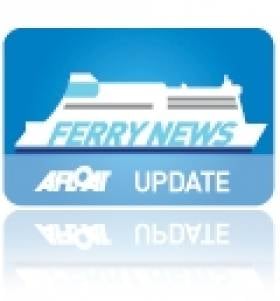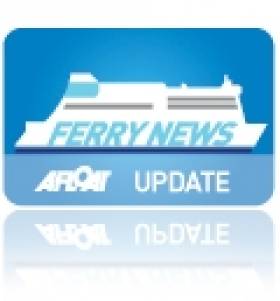Displaying items by tag: Port de Roscoff
Brittany Ferries End of Season Sailings
Pont-Aven's final end of season sailing will be departing Ringaskiddy on Saturday (29th) at 15.00hrs and she is due to arrive at her homeport of Roscoff at 06.00hrs local time.
To confirm sailing schedule including next season starting March 2012 click HERE and for sailing update click HERE.
The €100m luxurious ferry was built in Germany in 2004 and she entered service that year on the three-route roster linking Ireland on the 14-hour overnight weekend sailings in addition to serving on French-UK and UK-Spainish routes.
Uniquely she is the only ferry operating in Irish waters with a swimming pool which is enclosed on the upper deck. Of the various facilities, services and entertainment, they may vary depending on the date and time of year.
Overnight Sailing Marks End-of-Seasonal French Route
The former Scandinavian cruiserferry was built in 1987 to serve on Color Line's Oslo-Kiel route as their Kronprins Harald. In 2007 she was sold to start French sailings and at 31,914grt, she is the largest cruiseferry to operate under Irish Ferries continental routes. Passenger capacity is just shy of 1,500 and cars total 730 in addiition space for around 90 freight vehicles. For a virtual tour of the cruiseferry's on board facilities and exterior deck views click HERE.
Winter sailings will run to the end of the year with a final departure on 30th December outbound and returning from France on 2nd January 2012. Thereafter there will be a no sailings as the cruiseferry is to undergo annual dry-docking before resuming sailings. The first sailing from Ireland is 19th February and the corresponding return sailing from France is 21st February. To keep up-to-date with sailing schedules click HERE.































































